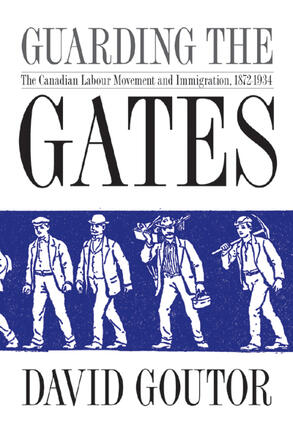
Guarding the Gates
The Canadian Labour Movement and Immigration, 1872-1934
A pioneering study of Canadian labour leaders’ approach to immigration from the 1870s to the Great Depression.
La description
From the 1870s until the Great Depression, immigration was often the question of the hour in Canada. Politicians, the media, and an array of interest groups viewed it as essential to nation building, developing the economy, and shaping Canada’s social and cultural character. One of the groups most determined to influence public debate and government policy on the issue was organized labour, and unionists were often relentless critics of immigrant recruitment. Guarding the Gates is the first detailed study of Canadian labour leaders’ approach to immigration, a key battleground in struggles between different political factions within the labour movement. This book provides new insights into labour, immigration, social, and political history.
Reviews
David Goutor skilfully explores the meanings and consequences of organized labour’s opposition to wholesale recruitment of labour abroad and to different streams of immigration . .. Goutor’s most significant contribution is to explore the relationship between labour’s attitudes to immigration and its ability to develop as an effective political force.
- James Naylor, Brandon University